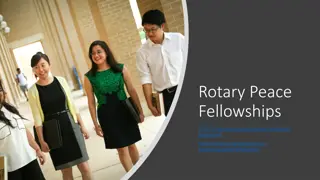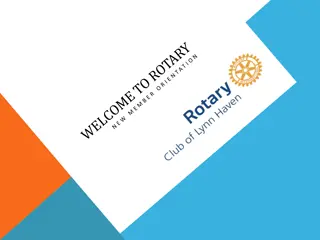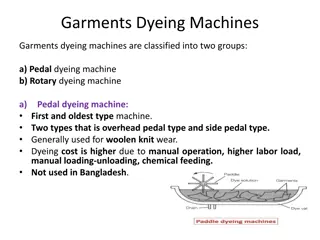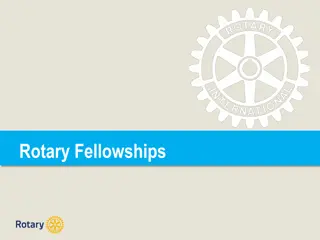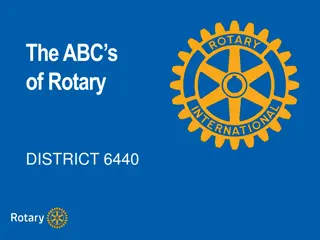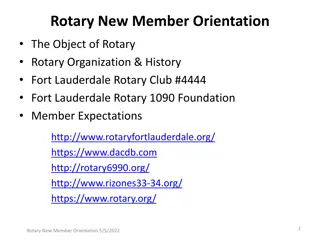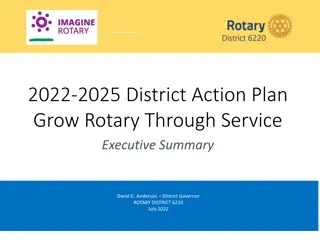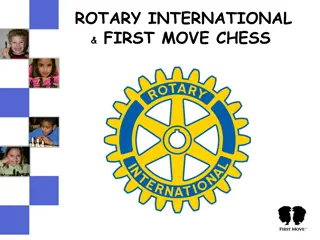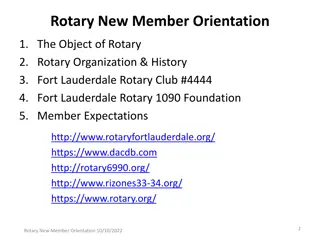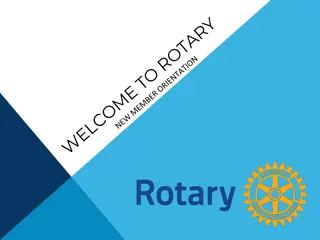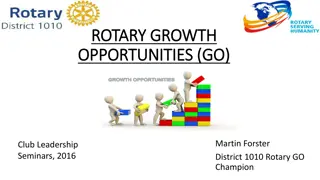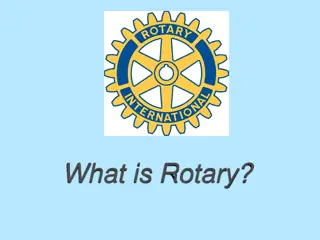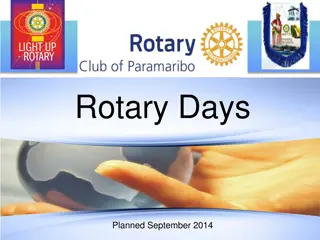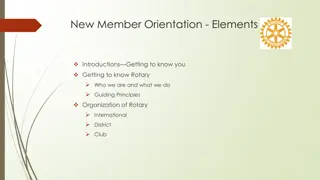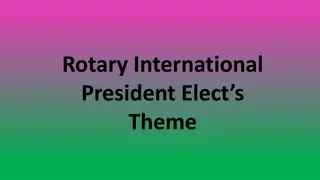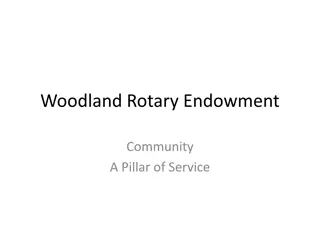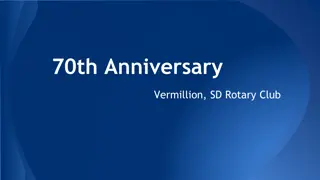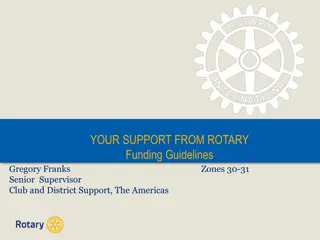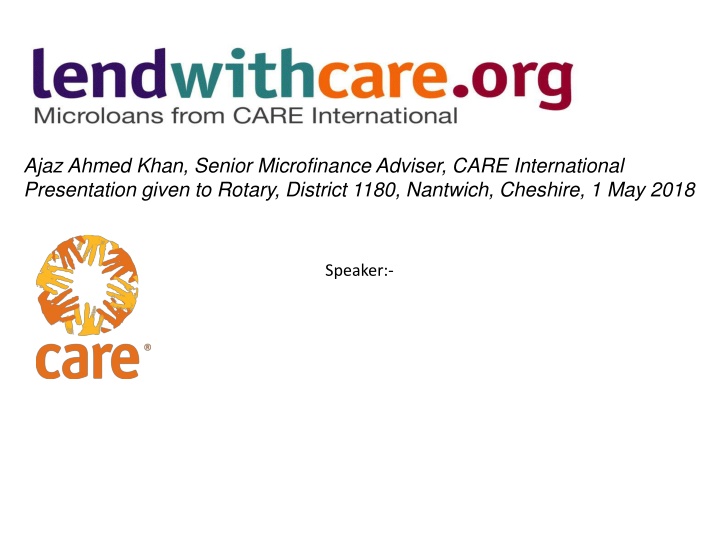
Empowering Communities Through Microfinance: Lendwithcare Platform Overview
Lendwithcare is a crowdfunding platform supporting businesses in low-income countries by providing loans to micro, small, and medium-sized enterprises. With a focus on creating employment, income opportunities, and poverty alleviation, Lendwithcare operates through local partners in various countries, prioritizing women beneficiaries. Through transparent lending processes and sustainable practices, Lendwithcare aims to foster economic development, financial inclusion, and self-reliance in underserved communities.
Download Presentation

Please find below an Image/Link to download the presentation.
The content on the website is provided AS IS for your information and personal use only. It may not be sold, licensed, or shared on other websites without obtaining consent from the author. If you encounter any issues during the download, it is possible that the publisher has removed the file from their server.
You are allowed to download the files provided on this website for personal or commercial use, subject to the condition that they are used lawfully. All files are the property of their respective owners.
The content on the website is provided AS IS for your information and personal use only. It may not be sold, licensed, or shared on other websites without obtaining consent from the author.
E N D
Presentation Transcript
Ajaz Ahmed Khan, Senior Microfinance Adviser, CARE International Presentation given to Rotary, District 1180, Nantwich, Cheshire, 1 May 2018 Speaker:-
What is Lendwithcare? Lendwithcare is a crowdfunding platform that supports businesses in low-income countries Rather than charity or handouts, micro, small and medium sized (SME) businesses are given loans to help establish or develop their economic activities The focus is on creating employment and income earning opportunities and encouraging (some) people to work their way out of poverty We started in 2010 and now work through 14 local partners in 11 countries (Zambia, Malawi, Rwanda, Zimbabwe, Philippines, Cambodia, Vietnam, Pakistan, Palestinian Territories, Ecuador and Peru) We always work through local partners who are either co-operatives, credit unions or non-governmental organisations in which profits are shared between members or re-invested in the organisation 70% of the loans made through Lendwithcare go to women who, research indicates, spend a greater proportion of their income on the welfare of the family. Give a man a fish and you feed him for a day. Teach a man to fish and you feed him for a lifetime
How does Lendwithcare work? You visit the website www.lendwithcare.org - and select a person to lend to. You can lend as from a minimum of 15 to the full loan amount. 100% of the loan goes to the borrower and you can as a lender, if you wish, make a voluntary donation All our partner organisations provide clients with extensive training and technical assistance as well as other financial and non-financial services Borrowers repay the loan monthly and your account is credited As the loan is repaid you can, if you wish, lend it out again. Or you can withdraw the money from your account. You can see who your money has helped and receive updates on their progress Around 2 billion people do not use formal financial services and more than 50% of adults in the poorest households are unbanked. Financial inclusion is a key enabler to reducing poverty and boosting prosperity
What are the benefits? We support small businesses in order to create employment, increase incomes, generate wealth and build assets. We promote self-reliance and independence in poor communities it is a hand- up rather than a hand-out . If all goes well (repayment is 99.7%), lenders receive their money back and they can withdraw their funds or choose to re-lend. In theory, the mone can simply keep revolving and continuing to help people indefinitely. Experience over the last 40 years has shown that poor people (especially women) are in fact a very good credit risk Transparent you can see where your money goes. All funds go to the borrower, we do not charge interest or take anything in administrative costs. Mass job creation is the central economic development challenge facing many low-income countries. Conflict, instability and migration are all exacerbated by the lack of employment opportunities .
What are the challenges? Selecting appropriate local partner organisations with whom to work since they are the ones who receive and appraise all loan applications. They decide what is a feasible business proposal or not. It is extremely difficult selecting the right partner organisation. Do they possess a strong social development mission as well as being financially sound? We undertake a lengthy process of due diligence on each partner. In Pakistan we also fund liberation loans to assist people who are heavily indebted to local moneylenders, and sometimes even trapped as bonded labourers Covering our operating costs because all of the loan monies go to support borrowers we take nothing We work in fragile environments so adverse weather, natural disasters and diseases all regularly impact on operations we have had to re-schedule loans on several occasions. While small businesses offer critical income generating opportunities, we must recognise that their profitability and potential is often limited by poor rural infrastructure, oversaturated markets and poor entrepreneurial skills. In such instances the impact of extra capital may be limited .
What is our strategy? We only fund loans for business and production we do not fund consumption We adhere to an ethical lending policy we do not support loans for environmentally unsustainable practices and in fact actively promote initiatives that encourage cleaner energy and reduce pollution such as solar energy, fuel efficient cooking stoves, and less polluting rickshaws About 10% of loans are directed at SMEs as these are the most likely to create waged employment opportunities for the poorest. Small and medium sized businesses create 4 out of every 5 jobs in low-income countries. One of the greatest obstacles to their development is their lack of access to finance.
Promoting cleaner energy in Vietnam We have provided loans to build several hundred household biogas plants that accept animal manure and other organic waste. After it decomposes it produces biogas that can be used for cooking, lighting and heating Households no longer need to pay for electricity (some households were not even connected to the grid in any event) nor collect firewood Households save money and (women s) time and other benefits include reducing deforestation, illnesses, environmental pollution and carbon emissions We also support many loans for improved water and sanitation Five of our partners are from Africa - 20% of Africa s population of 1.2 billion is aged between 15-24 and 41% is below the age of 14. Africa will be home to 38 of the 40 youngest countries in the world by 2050 and half the world s population will live on the continent by 2100
Increasing fair trade links Can we find markets for some of the items produced by borrowers? Would lenders be interested in buying these items? Linking with online retailers such as http://www.khama.co.uk/ to market some of the items. Developing countries need trade not aid
What about impact? We have undertaken rigorous research with the University of Portsmouth over the past three years in Pakistan and Zimbabwe. Data has shown increases in borrowers incomes and a reduction in poverty levels as compared with non-borrowers In Pakistan, on average, clients personal and household monthly income increased by 20% while monthly expenses increased by only 2.5%. The research showed that positive impact on income and poverty was proportionately greater for women 23% of clients reported purchasing household assets in the previous 12 months in 2017 compared to only 10% in 2015 74% of clients reported increased sales and 34% reported an increase in business assets The proportion of clients identifying lack of capital as the main limitation decreased from 77% to 20% There was a positive impact on employment. Whereas 69% of clients reported working alone in 2015, this proportion had fallen to 54% in 2017
How have we done so far? We have more than 48,000 lenders (95% are from the UK) and this includes groups as well as individuals. We attract around 500 new lenders each month Raised over 20 million in loan capital (the average loan size is around 375) Funded 84,910 small businesses. Since we are growing exponentially we expect to have funded over 100,000 small businesses at some point during late 2018 or early 2019 We usually re-schedule loans when borrowers livelihoods are impacted by events beyond their control such as typhoons and flooding. 99.7% on time repayment As well as consolidating the employment of borrowers and their immediate families, we have also helped to create 17,334 new jobs by these businesses taking on new workers Agriculture, already the largest employer in many countries (accounting for around 65% of employment in the least developed African countries), is the most immediate means of catalysing economic growth and employment for poor people approximately one-third of loans we support are for farming
Rotary International Support We have 203 Rotary Clubs from throughout the UK lending regularly Rotary Club of Nantwich joined Lendwithcare in May 2013. So far it has loaned 12,531 and received 9,524 in repayments. It has supported 201 small businesses. It has never withdrawn any funds, rather it re-invests any repayments it receives. In the spirit of Rotary International we aim to help those less fortunate than ourselves and by helping this cause we are giving these people a chance to help themselves improve their circumstances with dignity. Other Rotary clubs from District 1180 include Ormskirk Clocktower, Flint and Holywell, Bangor, South Sefton, and Tarporley. Rotary s support has been instrumental in the success of Lendwithcare through both lending and generating publicity The Founder and Executive Director of one of Lendwithcare s partner organisations in Ecuador is a Rotarian (District 4400, Loja, Ecuador)
Thank you! Thank you! Khan@careinternational.org Khan@careinternational.org At a time when about half the world s population lives on the equivalent of US$2 a day, the critical role that jobs play in advancing development cannot be overstated. For a country, jobs bring economic and ultimately political stability. For an individual, a job means more than an income. A job brings self-respect, independence and choices. A job brings family stability. And a job brings empowerment, especially for women and young people.

